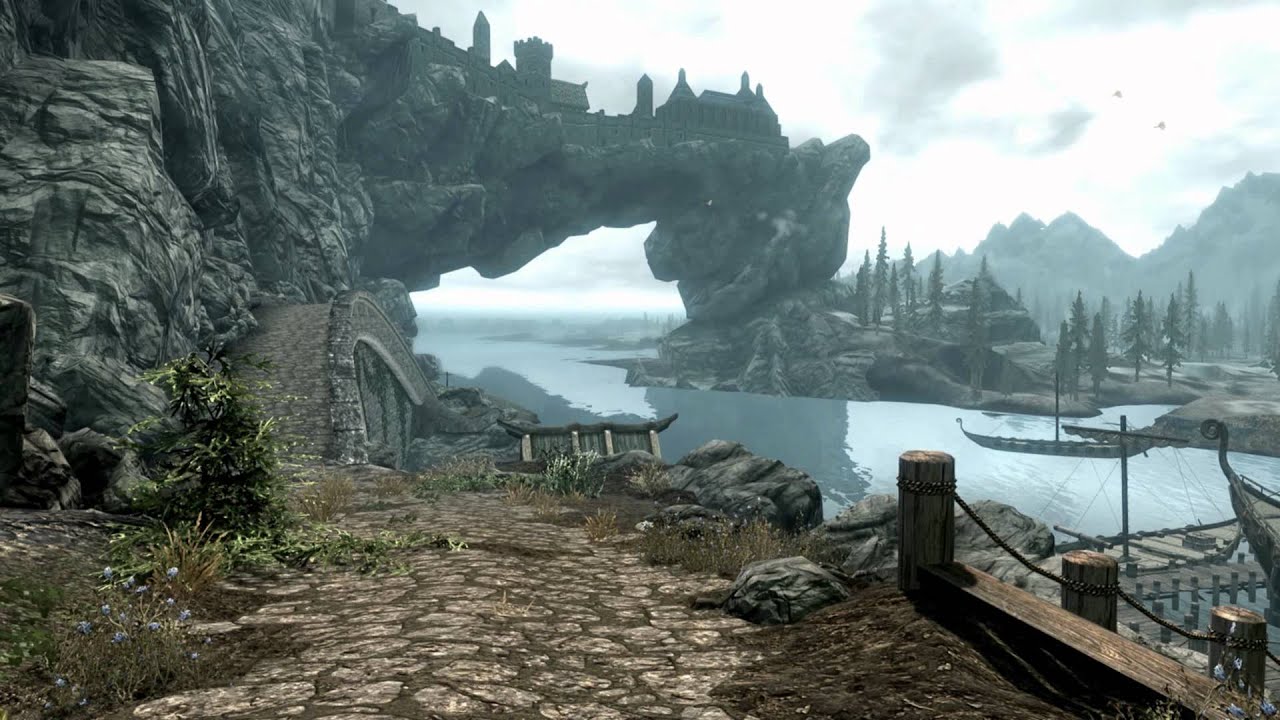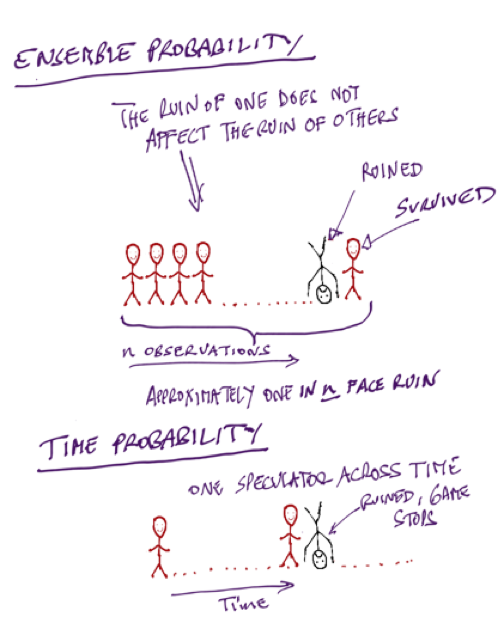Introduction
In our new reality, videogames is what smoking was in the ’60s. Cheap, damaging and addictive. With this short essay, I want to warn about the biggest dangers that you incur while focusing your mind on this new type of human creation.
Virtual is better than Reality
It is probably the most dangerous effect of video-games that I observed on myself. When you immerse yourself in role-playing-game (like in my times were Oblivion and Skyrim), you stroll through forests and rivers in hyper-realist graphics like this.

Secret caves, elves, swords, spells: this virtual reality world is so cool! It is like being in Middle Earth, an unspoiled, natural land where the classical misfortunes of humanity are solved (ever heard about disease, famine or pollution in Fantasy-like narrations? No of course, they are ugly). Unfortunately this parallel world is so cool that you start losing interest in the “normal” wonders of reality.
A walk in a forest doesn’t interest you that much, in fact it seems boring. They are just trees after all and it is not worth to move your ass from your couch to the outside world. Reality is neither predictable nor comfortable as a video-games, people are not NPCs (Not-Playing-Characters), if you don’t treat them properly they will say fuck off and ultimately, there is no re-spawn mechanism. What you usually see in video-games, or in fantasy books for what matters, is an ideal representation of how human would like the world to be.
When I hear people saying “I like Open World Playing Games”, I interpret it as follows: you like hiking, exploration, nature, discovery and excitement like every human being. You are conflating your human needs with cravings generated by digital entertainment, the 21st century’s cocaine. You are anesthetizing your needs with artificial dopamine.
In no time in history, people have been enclosed between four walls and in front of a screen, fantasizing and masturbating about real Life.
Here again the main theme of this essay; that video-games are essentially masturbation.
Games and Risk, it is not just one turn
In real life, we don’t evaluate risk based on the single event but on the whole set that that event bring with itself. We know that smoking one cigarette is hardly dangerous. For sure it passes a cost-benefit analysis. However, it can bring me in a vicious cycle of addiction, that’s why the wise action is not smoking that first cigarette.

Video-games are like that. Playing one hour might even bring more benefits than costs. However, between these products there is an army of high I.Q. engineers and scientist that design them in order to be as addictive as possible. You will never play one time because they are not structurally created to be played ad-infinitum.
Mechanism such as:
- Character progression, which grants rewards based on the effort of the player and makes getting your virtual bunch of bits (your character) on the next level (i.e. a plus in a counter variable in the codeline) so exciting
- Competition between players, which instills in the player the desire of defeating and being better than the other
- Random rewards (every 10 games you might get a special benefit which accelerates your progression), which gives the player the illusion of novelty and makes him desire to play more
- Status Quo, including all the elements that signal status (in an online RPG, armors, weapons, levels; in a MOBA, skins, badges,…), which encourages the player to play even more, to get even more result and accumulate more wealth
These are all good instincts in Man and constitute the basis for our Capitalistic economy. The drive to succeed, to accumulate wealth, to be better than our own neighbour might all seem as individualistic and opportunistic to the naive. For those, I suggest to read this famous Adam Smith passage.
It is not from the benevolence of the butcher, the brewer, or the baker that we expect our dinner, but from their regard to their own self-interest.
So my argument is not that these desires are wrong. The problem is that you are playing the wrong game, you are fighting for bits instead of doing that for money, status or whatever motivates you.
Opportunity Costs
I was talking to a friend the other day who was telling me: video-games are not optimal but they still give you something. I presume he was referring to some “entertainment” or some “knowledge”.
The Supposed Benefits - My Experience with Strategy Games
There is a certain kind of truth in this statement. Strategy games taught me the mindset necessary to solve conflictual situations, where you have a goal, a definite set of scarce resources that you have to allocate in the best possible manner and a number of opponents who will try to hinder your progress. These skills apply wonderfully to business or sports for example. The main ideas behind them are:
- Models.Look at the essential. Think everything as a model. Characters, graphic, lore, narration, …. All of them were just a cover up of what lied behind: numbers and flows. I learned that dissecting reality can reveal its true nature and this leads us to the second point.
- Optimization. Once you simplified reality to a simpler structure, you can understand which lever you can pull to get to your final objective, given a certain set of constraints.
I would argue however that video-games is just one of the many ways to learn them as it is brings heavy side-effect to the party. For example, the combination of chess, board games and reading history books seems to a me a superior choice in every aspects.
Fear of Missing Out
I am always skeptical of this kind of “there is still some benefit” argument. It resembles me the notion, as Cal Newport very well argued, that since social media still give you some benefit (even though is much, much smaller compared to its cost), you should use them because “you are missing out”.
The truth is that, in order to evaluate rationally a set of choice, you have to consider also its opportunity cost, i.e. what you are losing given that you have taken that decision.
When you compare staying in front of a screen, to intense and fulfilling intellectual or social activities, you get a better view of the impact of your decision. This is just a list for guys who wonder: “ I am bored. What the hell should I do in my free time?” I can think of some attractive options that I am doing myself:
- For your mind : reading non-fiction (at the time of writing these words, I am reading Barzun, Popper and Hayek. Impossible to get bored), learning to code, writing, creating a blog, walking…
- For your soul: playing sports, having a chat with friends, calling your parents,…
- For your body: HIIT (High Intensity Interval Trainings), weightlifting, sprinting, swimming,…
More importantly, doing nothing is an option provided that you are actually doing nothing, not listening to music while scrolling through Instagram and exchanging messages on Whatsapp.


Comments